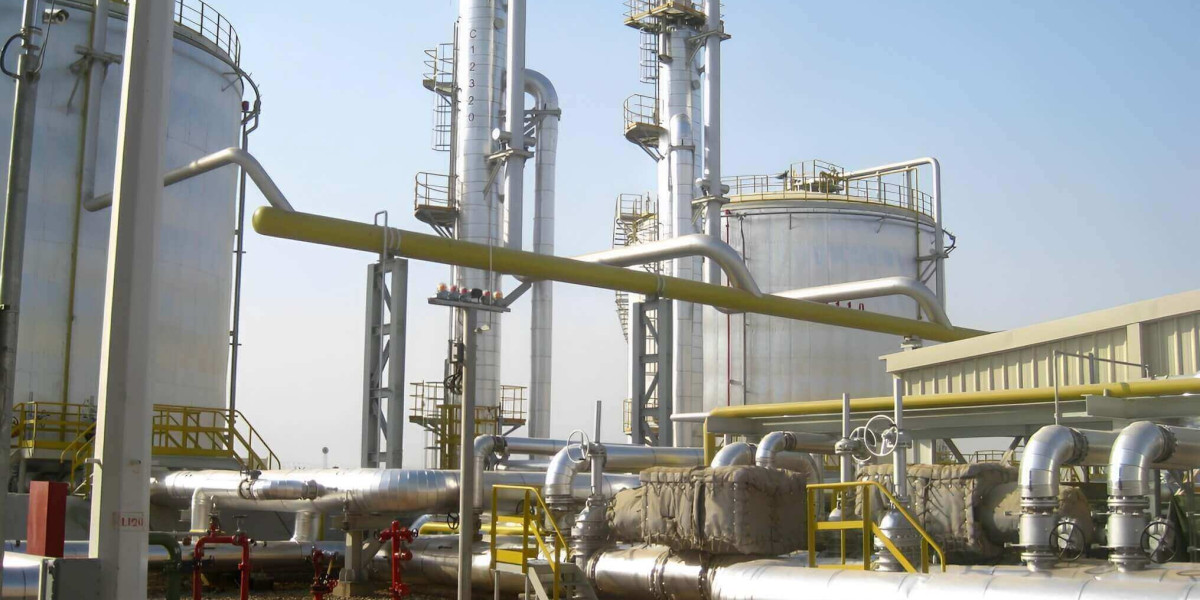Introduction
Iraq is a major player in the world energy market because of its enormous oil and gas reserves. The country’s rich hydrocarbon resources have not only fueled its economy but also shaped its geopolitical significance. Today, the landscape of oil and gas companies in Iraq is evolving, with both local and international firms striving to harness these resources responsibly and efficiently. This article delves into the current state of the oil and gas industry in Iraq, the challenges it faces, and the opportunities that lie ahead.
The Importance of Oil and Gas in Iraq’s Economy
Oil and gas are the backbone of Iraq's economy. They account for a significant portion of the country’s GDP and government revenue. In fact, oil exports alone contribute to over 90% of Iraq's total revenue, making the sector crucial for funding public services and infrastructure development. The country possesses the fifth-largest proven oil reserves in the world, predominantly located in the southern region, particularly in Basra. Additionally, Iraq's natural gas reserves are substantial, providing ample opportunities for domestic energy production and export.
Key Players in the Iraqi Oil and Gas Sector
The oil and gas companies in Iraq include a mix of state-owned enterprises and international oil companies (IOCs). The main state-owned organisation in charge of overseeing oil exploration and production is the Iraqi National Oil Company (INOC). In recent years, the Iraqi government has opened its doors to foreign investment, resulting in several partnerships with major IOCs, such as:
· BP: The British oil giant has been involved in the Rumaila oil field, one of the largest in Iraq, contributing to increased production and efficiency.
· ExxonMobil: This American multinational has significant operations in the West Qurna oil field, focusing on boosting recovery rates and developing infrastructure.
· Shell: Shell has made strides in the natural gas sector, particularly in capturing and utilizing flared gas, which is a major environmental concern in Iraq.
· Total: The French company has been actively involved in various projects, including the development of oil fields and the enhancement of infrastructure.
These partnerships have allowed Iraq to benefit from foreign expertise, technology, and investment, which are essential for modernizing its oil and gas operations.
Challenges Facing the Oil and Gas Industry
Notwithstanding its enormous potential, Iraq's oil and gas industry confronts several obstacles that limit its expansion and effectiveness:
1. Security Concerns
Ongoing security issues, stemming from political instability and the presence of extremist groups, pose significant risks to oil operations. Companies must navigate these challenges while ensuring the safety of their personnel and assets.
2. Infrastructure Limitations
Much of Iraq’s oil infrastructure is outdated and requires significant investment to enhance capacity and efficiency. Operating inefficiencies and higher expenses may result from the absence of contemporary pipelines, refineries, and storage facilities.
3. Corruption and Bureaucracy
Corruption remains a persistent issue in Iraq, impacting the business environment. The bureaucratic processes involved in securing contracts and permits can be cumbersome, deterring potential investors.
4. Environmental Concerns
The oil and gas industry has faced criticism over its environmental impact, particularly concerning flaring and water management. Companies must implement sustainable practices to mitigate these effects and comply with international environmental standards.
The Role of MUE Group in Iraq's Oil and Gas Sector
As the oil and gas landscape in Iraq evolves, firms like MUE Group are stepping in to provide innovative solutions and support to the industry. MUE Group specializes in engineering and consultancy services, helping oil and gas companies in Iraq navigate the complexities of modern energy projects.
By leveraging their expertise, MUE Group assists firms in optimizing operations, enhancing safety protocols, and implementing sustainable practices. Their commitment to quality and innovation positions them as a valuable partner in driving the growth of Iraq's oil and gas sector.
Future Opportunities in Iraq’s Oil and Gas Industry
Looking ahead, Iraq's oil and gas industry is poised for significant development. The government has announced plans to increase oil production to 6 million barrels per day by 2025, which will require substantial investment in infrastructure and technology.
1. Renewable Energy Integration
As the world shifts towards renewable energy, Iraq has the potential to diversify its energy portfolio. By investing in solar and wind projects, Iraq can complement its oil and gas output, making strides toward a more balanced energy strategy.
2. Enhanced Oil Recovery Techniques
The application of advanced technologies, such as enhanced oil recovery (EOR), can help Iraq maximize its existing reserves. By utilizing techniques that improve extraction rates, companies can increase production without the need for new drilling.
3. Partnerships and Collaborations
Continued collaboration between local companies and international firms will be essential for Iraq's energy future. Such partnerships can facilitate knowledge transfer, modern practices, and access to global markets.
Conclusion
The oil and gas companies in Iraq play a pivotal role in shaping the country's economic landscape. With immense potential and numerous challenges, the future of the industry will depend on strategic partnerships, innovative solutions, and sustainable practices. Firms like MUE Group are stepping up to support this transformation, ensuring that Iraq's rich energy resources are harnessed responsibly for the benefit of its people and the global market. As Iraq continues to evolve, the oil and gas sector will remain a cornerstone of its development, paving the way for a prosperous future.







